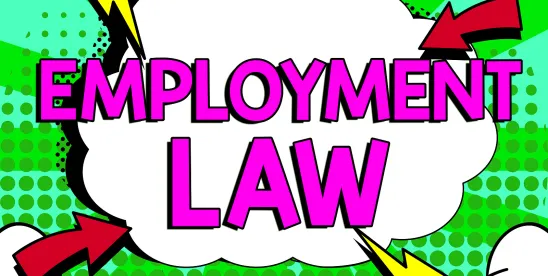- The National Labor Relations Board is appealing a Texas district court’s ruling that struck down the Board’s 2023 joint-employer rule as unlawfully overbroad. U.S. Chamber of Commerce v. NLRB, No. 6:23-cv-00553-JCB (E.D. Tex. May 7, 2024). The rule sought to broaden the Board’s prior standard by finding two entities are joint employers when one entity possesses the authority to control at least one of seven enumerated essential terms and conditions of employment of the other entity’s employees, regardless of whether the first entity actually exercises that control. The Board is appealing the ruling to the U.S. Court of Appeals for the Fifth Circuit. Following the district court’s ruling, the U.S. Congress approved a resolution to reject the new rule, but President Joe Biden vetoed the resolution. The joint-employer analysis has significant implications for employers as, inter alia, it determines when one entity can be held liable for the other’s unfair labor practices and when two entities need to jointly bargain with a union.
- President Joe Biden announced he will renominate Board Chair Lauren McFerran to a third term and nominate Joseph L. Ditelberg to fill the Board’s vacant Republican seat. McFerran has served as the Board’s Chair since 2021, while Ditelberg is a labor and employment attorney at a U.S. management defense firm. Once the president formally nominates the individuals to the U.S. Senate, the Senate will vote whether to confirm the nominations. The Board has had one vacant seat since former Republican member John Ring’s term expired in December 2022. Because of the vacancy, the Democratic members’ 3-1 majority means each three-member panel selected to decide a case has a Democratic majority. Filling the vacant seat will likely assist the Board in navigating its significant case workload.
- The Illinois legislature passed a bill banning captive audience meetings, while Colorado’s governor vetoed similar legislation. If enacted, the Illinois legislation would prohibit employers from taking any adverse employment action against employees who refuse to attend or participate in an “employer-sponsored meeting” or listen to a communication if its purpose is to communicate the employer’s opinion on religious or political matters. “Political matters” includes the decision to join or support any labor organization. In essence, the law prohibits employers from mandating its employees attend meetings where the employer attempts to dissuade employees from unionizing. Illinois could become the seventh state to prohibit mandatory captive audience meetings, following similar bans enacted in Connecticut, Maine, Minnesota, New York, Oregon, and Washington. The Board’s General Counsel Jennifer Abruzzo has taken aim at captive audience meetings, claiming they violate employees’ rights under the National Labor Relations Act.
- The U.S. Chamber of Commerce and other business groups filed a lawsuit challenging the Department of Labor’s final rule for Occupational Safety and Health Administration (OSHA) workplace inspections. U.S. Chamber of Commerce, et al. v. OSHA, et al., No. 24-271 (W.D. Tex. May 21, 2024). The business groups allege the “walkaround rule” exceeds OSHA’s statutory authority by unlawfully expanding third-party access to employer worksites and permitting an unlimited number of non-employee representatives to participate in the worksite inspections, among other things. The group maintains the rule aims “to politicize health and safety inspections by authorizing union organizers to access non-union workplaces” and provide more plaintiffs’ attorneys with a “front-row seat” when preparing for litigation against employers. The rule took effect on May 31, 2024.
- The National Collegiate Athletic Association (NCAA) approved settlement terms in antitrust lawsuits regarding student-athlete compensation. The terms of a settlement would require the organization to pay nearly $2.8 billion over a 10-year period to former Division I athletes and institute a revenue-sharing model between certain schools and athletes. The settlement is also expected to involve a reaffirmation of existing NCAA rules regulating student-athlete compensation and the creation of an enforcement infrastructure for those rules. Compensation for student-athletes has been gaining momentum at the Board level as well, particularly as the Board’s general counsel stated her position in a 2021 memorandum that certain student-athletes may be considered “employees” under the Act.
Top Five Labor Law Developments for May 2024
Monday, June 10, 2024
Current Public Notices
Published: 11 August, 2025
Published: 11 August, 2025
Published: 8 August, 2025
Published: 8 August, 2025
Published: 30 July, 2025
Published: 29 July, 2025
Published: 28 July, 2025
Published: 23 July, 2025
Published: 21 July, 2025
Published: 18 July, 2025
Published: 10 July, 2025
Published: 26 June, 2025







 />i
/>i

